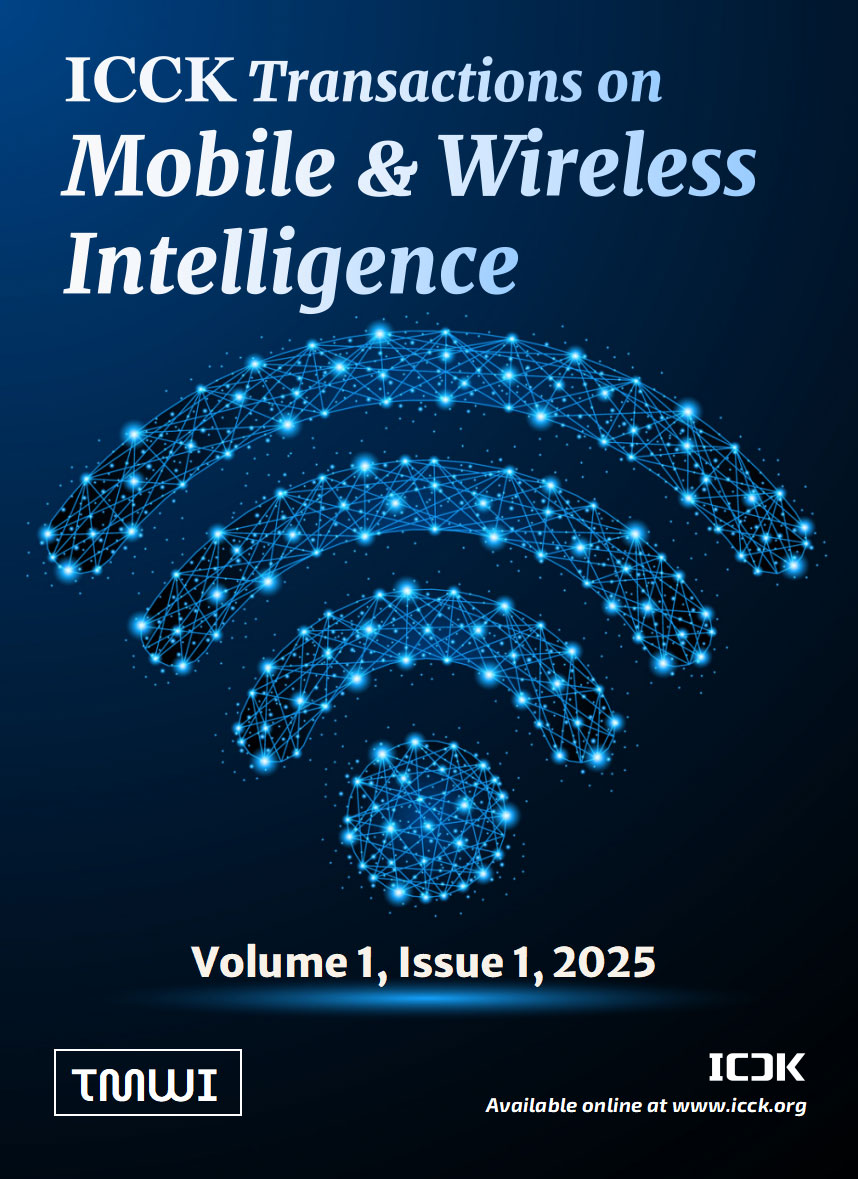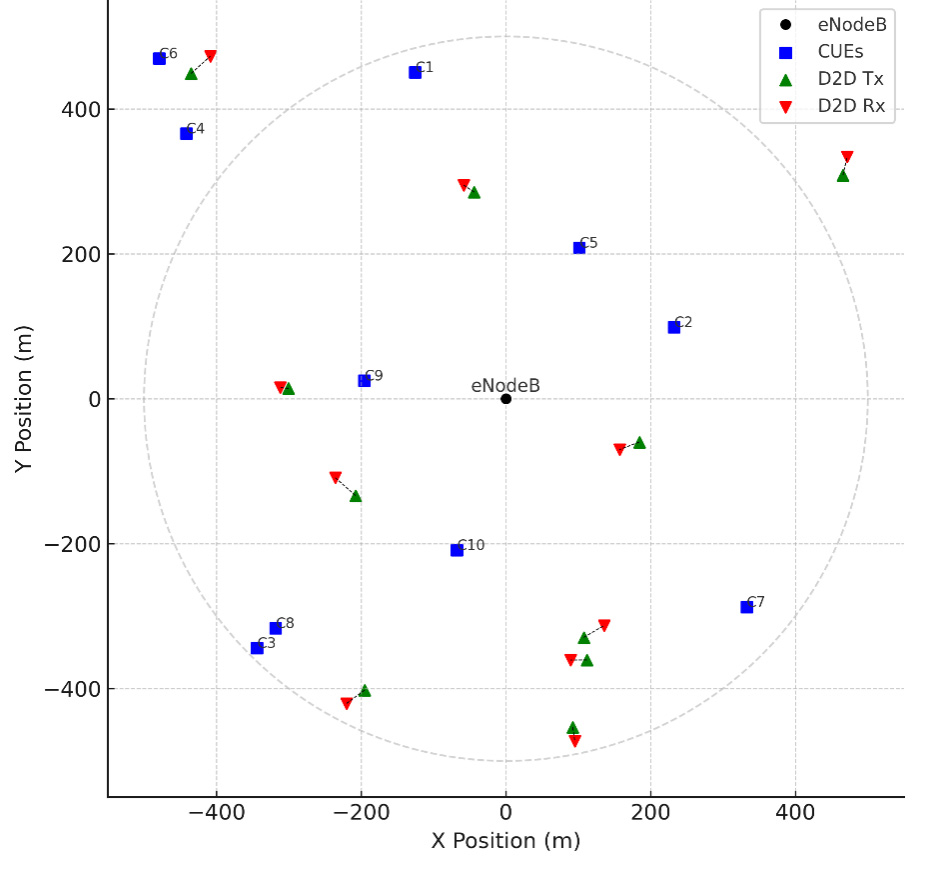Abstract
Device-to-Device (D2D) communication serves as a pivotal technology in the evolution of cellular networks, presenting opportunities to markedly improve spectral efficiency, minimize latency, and optimize energy consumption through direct interactions between user devices. Nonetheless, the implementation of spectrum reuse by D2D pairs presents significant interference challenges, particularly in underlay communication contexts. This paper presents a robust and energy-efficient resource allocation mechanism utilizing a polynomial-time proportional fair (PF) scheduling algorithm. The framework provides minimum rate assurances for cellular users while adaptively distributing multiple resource blocks to D2D pairs in response to fluctuating channel conditions. A greedy heuristic is utilized to address the mixed-integer nonlinear optimization problem in the context of real-time scheduling. Simulation outcomes indicate that the proposed methodology significantly enhances network throughput, decreases energy consumption, and mitigates packet loss, thereby confirming its relevance for 5G and future heterogeneous network environments.
Keywords
device-to-device (D2D) communication
communication
resource allocation
energy efficiency
interference management
5G networks
heuristic scheduling
proportional fairness
Data Availability Statement
The source code supporting the simulations in this study is available in a Google Drive repository at https://drive.google.com/drive/folders/1C9t3YO_DhPogYCq801F_6yBX2j_Qzkk2
Funding
This work was supported by Scientific and Technological Research Council of Turkey (TUBITAK) under Grant 124E519.
Conflicts of Interest
The authors declare no conflicts of interest.
Ethical Approval and Consent to Participate
Not applicable.
Cite This Article
APA Style
Islam, M. Z., & Adnan, M. N. (2025). A Robust Resource Allocation Method for Energy Efficient Device to Device (D2D) Communication. ICCK Transactions on Mobile and Wireless Intelligence, 1(1), 32–39. https://doi.org/10.62762/TMWI.2025.764788
Publisher's Note
ICCK stays neutral with regard to jurisdictional claims in published maps and institutional affiliations.
Rights and Permissions
Institute of Central Computation and Knowledge (ICCK) or its licensor (e.g. a society or other partner) holds exclusive rights to this article under a publishing agreement with the author(s) or other rightsholder(s); author self-archiving of the accepted manuscript version of this article is solely governed by the terms of such publishing agreement and applicable law.


 Submit Manuscript
Edit a Special Issue
Submit Manuscript
Edit a Special Issue

